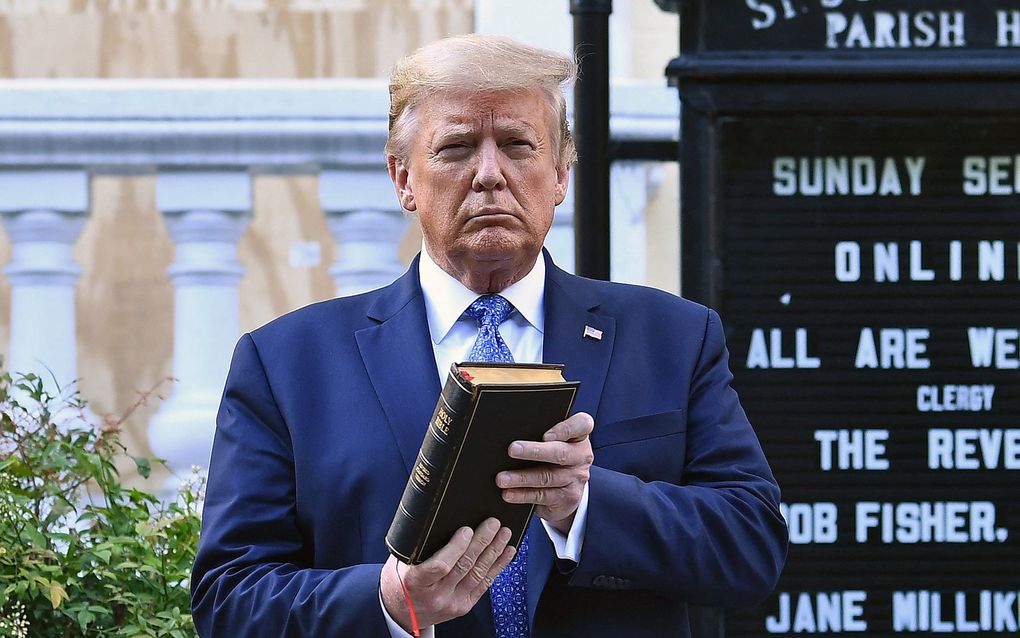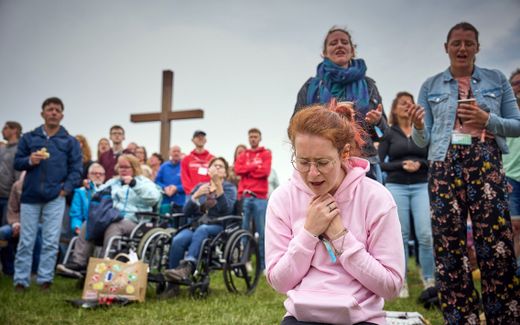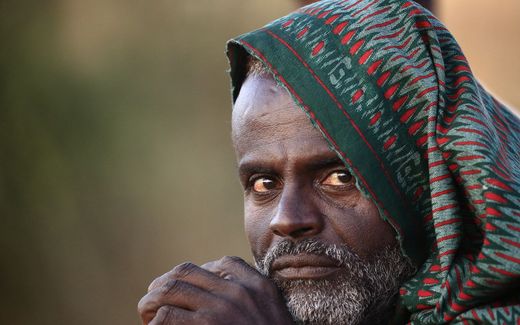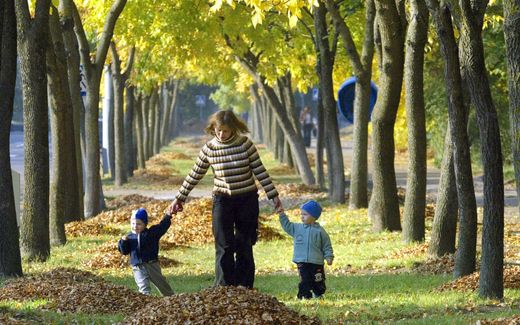Where you can find hope in a hopeless world
29-08-2024
Opinion
Carl Trueman, WORLD News Group

Donald Trump holds up a Bible outside of St John's Episcopal church. Hope cannot be found in a Presidential candidate or in other politicians, but only in the Word of God, Carl Trueman believes. Photo Brendan Smialowski
Opinion
When death takes our loved ones away from us, we forget the little things around us. There’s only one place to find hope when we desperately need it, Carl Trueman writes.
Over the last twelve months I have seen death touch the lives of too many friends. Not the expected kind of death –that of the elderly person full of years– but the hard, dirty deaths of those who should have lived for decades more.
Of course, to the Christian no death is ‘natural’ in the strict sense of the word. But there is something deeply unnatural about a husband losing his wife before she is 60, still more about parents standing by the graveside of their teenage child. Though we have been as yet untouched by such tragedy, my wife and I find our devotional times preoccupied now with asking the Lord to comfort our numerous devastated friends.
Gospel
These sad events put in perspective our current cultural moment. The temptation at a time of extreme polarisation in the realm of earthly politics is to set aside the eternal for the temporal or, to put it more bluntly, to set aside hope for hopelessness.
Whoever wins in November can at best only help to save the body. That is not a bad thing in itself but it is not the Gospel and should not be confused with the Gospel, nor allowed to marginalise the Gospel even for a moment. Christ calls his people to fear not the one with power solely over the body but the one who has power over body and soul.
This is why it is no minor matter when one political candidate sows confusion over the Word of God. He is not only stepping outside of his sphere of vocational competence, but also doing something much worse than jeopardising mere bodies. He is stealing hope, eternal hope, for the sake of temporal political success and thereby jeopardises souls.
This article was written before President Joe Biden decided to withdraw as a candidate for the upcoming elections.And when the other mocks in practice the faith to which he claims to be devoted, he too robs people for whom he claims to care of the one thing that is truly, eternally important. Voting, of course, is a dirty, pragmatic business, rife with trade-offs and compromises. You may still feel that one candidate is less evil than the other and decide to vote for him. But surely it should be hard for any focused on the things that truly matter to do so with any enthusiasm.
Pretentious visions
For the bereaved, whether widower or parent, politicians offer no real hope. The graveside puts them and their limited powers and pretentious visions in perspective. No party manifesto read at a graveside or at the bedside of one dying of cancer will bring any comfort. And so, in the midst of all this, the question of where hope is to be found becomes acute.
Like so many theological and philosophical issues, we typically treat this as an abstract issue. The problem of hope, like the problem of evil, is one that we can discuss in class or over a cup of coffee before moving on to the next topic of interest. But hope, like evil, is ultimately a personal, existential thing. Evil is not an abstraction, nor an impersonal force. It is active and envelopes real people in real time. That is why novels –Crime and Punishment, Billy Budd,or Brighton Rock, for example– rather than many systematic theologies often seem to come closer to the truth of this fallen world as we experience it.
Grace
And when it comes to hope, the answer for the Christian is not found in an idea or in a seminar room discussion but in the Word of God, incarnate and inscripturated, and proclaimed to God’s people in the preaching of that Word and in the administration of the sacraments of baptism and the Lord’s Supper. Hope is a person –Christ crucified and risen – and he is actualised in the life of the church through the Holy Spirit as she goes about her daily, routine business of preaching the gospel, baptising, and serving communion. There we encounter life in the Christ who defeated death, not by escaping from it, but by coming through it in resurrection triumph. Only in that context –in the life of the church– can hope be found.
And that is where my wife and I have found comfort in our prayers for our bereaved friends. Each and every one of them prioritised Christ above all earthly powers. Though each grieves with acute pain, they do not grieve as those who have no hope. Their faithful attendance upon the means of God’s grace –Word and sacrament– over many years has given them the light of hope amid the encroaching darkness. Would that I too will be able to say the same when death touches me and mine.
About the author
Carl R. Trueman taught on the faculties of the Universities of Nottingham and Aberdeen before moving to the United States in 2001 to teach at Westminster Theological Seminary in Pennsylvania. In 2017-18 he was the William E. Simon Visiting Fellow in Religion and Public Life in the James Madison Program at Princeton University. Since 2018, he has served as a professor at Grove City College. He is also a fellow at the Ethics and Public Policy Center and a contributing editor at First Things. Trueman’s latest book is the bestselling The Rise and Triumph of the Modern Self. He is married with two adult children and is ordained in the Orthodox Presbyterian Church.
This article was published by WORLD News Group on May 7, 2024
Related Articles









